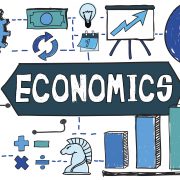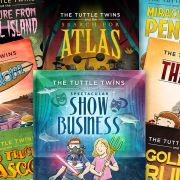Stories matter. It’s a truism for journalists, but not so much for economists. Robert Shiller, the Yale professor and Nobel laureate who predicted the housing crisis and also put behavioral economics on the map, aims to change that in a book dedicated to the thriving field of narrative economics.
While many economists are still busy creating mathematical formulas to decode and contextualise our supposedly “rational” behavior, people’s actions are more often based on human interest stories than hard data. “When we are asleep at night,” he points out, “narratives appear to us in the form of dreams. We do not dream of equations or geometric figures without some human element.”
The idea that human behavior can exert its own influence in the market is something that most traders would buy into (investor George Soros turned it into a theory that he called “reflexivity”). But in Narrative Economics, Shiller goes much broader and deeper, looking at how the stories we tell ourselves about the world drive our behavior — and thus the world itself if enough people buy into them. Economists, he argues, need to study this if they are to have any hope of doing a better job than they have in the past of predicting major events — such as recessions or asset bubbles — and how people react to them.
Consider, for example, the fall in stock prices that began after Austria-Hungary declared war on Serbia on July 28, 1914. New York and the major European exchanges reacted by closing their doors. That only increased panic, contributing to activities such as the shipping of large quantities of gold from the US to Europe, which in turn increased the danger on major transatlantic shipping routes. This itself was driven by a narrative that took hold among jittery Europeans around the Panic of 1907, which many held up as proof that America was unstable and they should get their money out as fast as possible.
Given all this, why did markets not close after Britain declared war on Germany on September 3, 1939? In part because of a widely shared story that the first world war had ultimately proved to be very profitable for investors who had kept their US assets, and thus were able to make money selling supplies to Europeans during the war. One result of this narrative was that the S&P index gained 9.6 per cent after war was declared.
All this seems so fuzzy — how can we sift through any of the millions of narratives floating around at any particular moment, particularly in our world of high-speed data, and find those that have meaning and will go viral? (Like diseases, narratives must spread widely in order to be economically relevant.)
It turns out that there is some connective tissue in terms of what spreads. Novelty often catches on — Shiller explains how the “Happy Birthday” song, which used the same tune as an earlier piece of music, was much more successful because it allows us to place our own name in the lyrics. There are also several timeless narratives that seem to come back again and again, mutating for each new era. Fear and hope around technology are both common, as are moral narratives such as the need for thriftiness, which Shiller believes helped prolong the Great Depression, or stories based on strong emotions such as anger against interest groups that are perceived to be selfish or out of touch — like corrupt unions in the past, or rich people today.
These stories, says Shiller, shape policy. In 1957, for example, a 3.7 per cent rise in inflation from the year before — significant in today’s terms but nothing like the 23.6 per cent rise in 1920 — created a strong crackdown by central bankers in the US and elsewhere, thanks in part to an LA Times editorial that detailed the misdeeds of selfish union bosses. Allan Sproul, the recently retired president of the Fed at that time, lamented that the “Federal Reserve System finds itself in the position of having to validate, however reluctantly, public folly and private greed by supporting increased costs and prices”. One might write a narrative of the past 10 years involving desperate central bankers trying to paper over the misdeeds of selfish and myopic politicians by keeping rates low and unwittingly brewing up a huge asset bubble and higher inequality.
But can we actually quantify the effect of narrative economics? Not easily, says Shiller. He calls for more data — in the form of interviews that question people about the stories they tell each other and themselves, and a database of sermons that capture the most important passion plays of the day. Believing that easy money will soon give way to a market crash is certainly one. If Shiller is right, the more we believe it, the more likely it will be.













